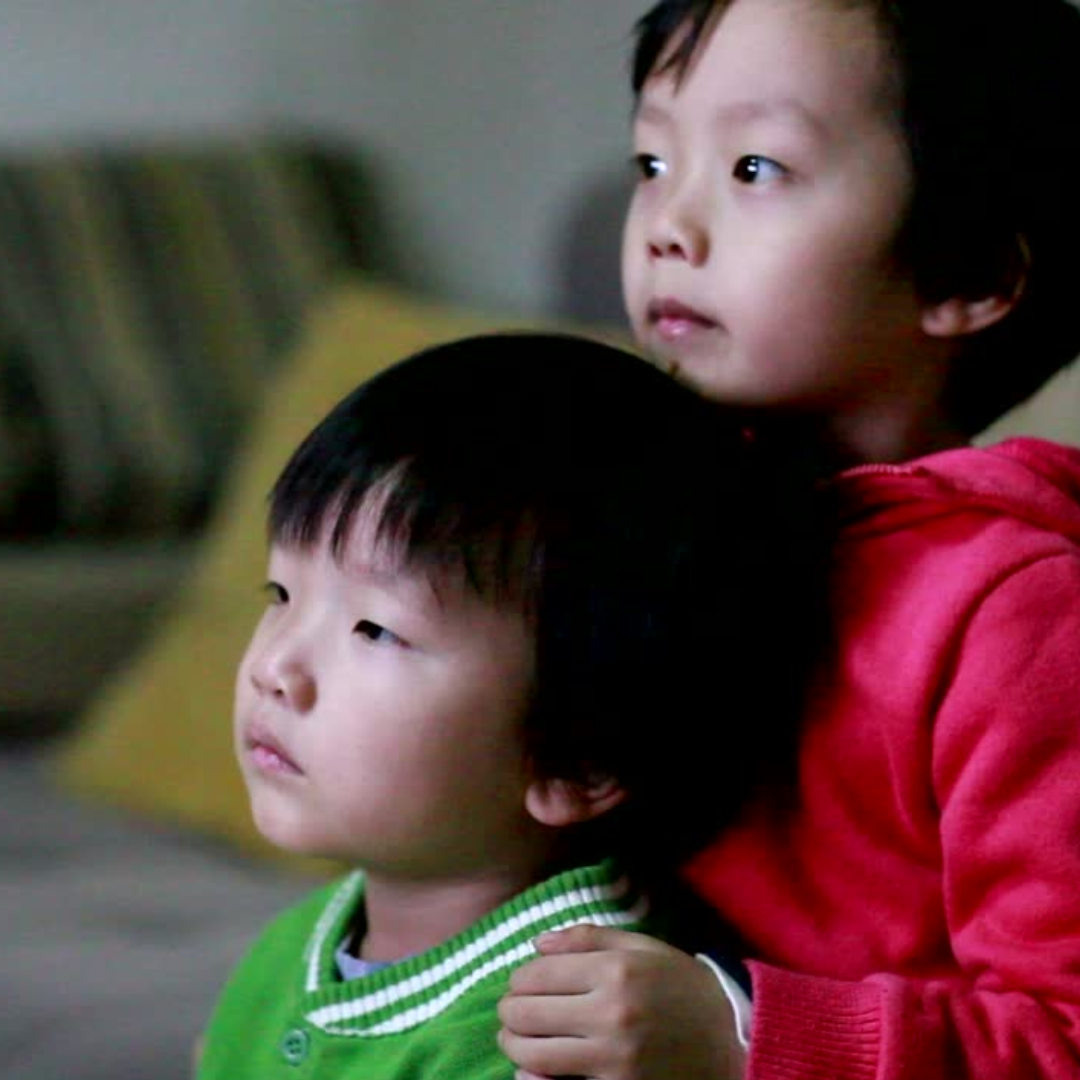How To Talk To Your Kids About Mental Health; A Complete Guide For Parents

How To Talk To Your Kids About Mental Health; A Complete Guide For Parents
How To Talk To Your Kids About Mental Health
1 in 5 children lives with a serious, diagnosable mental illness. 1 in 5. Think about your child’s friends, their class, and their school. That’s a lot of kids. It’s never been more important to be able to speak openly and honestly about mental health with your children. Fortunately, today’s parents are more open to discussing these important issues than previous generations.
So, you’re open to discussing mental health with your child, but how do you do it? Where do you start? As with most essential topics, start at the beginning. Talk with your children about their feelings, focus on their strengths, and most importantly listen to what they have to say.
Here are some tips from our parenting experts to get the conversation started at any age and to keep it going.
Preschool
It’s never too early to begin talking to your child about mental health. For your younger children, keep it simple and speak in terms and contexts that they will be able to understand. Preschool-age children are likely not just going to tell you how they feel, but they may express their feelings in a variety of ways. Look for their clues and engage them when you see them expressing different emotions. Use these clues as an opportunity for you to help them understand their feelings as they are first experiencing them and help them navigate their reactions to those emotions.
What to ask. And what to say to your preschooler.
- What causes you to have butterflies in your stomach?
- This feeling of anxiety or nervousness is an easy one for children to recognize as it manifests itself physically. Help them identify what causes these feelings and help them cope with it by facing their feelings head-on.
- Where do your feelings come from?
- Helping your children understand where their feelings come from, how and why they react to certain experiences and stimuli, can help them begin to work out what to do with those emotions.
- Who can you talk to if your feelings get to be too much?
- Let your children know that you are there for them always. But also teach them to establish trust with other key adults in their lives. Grandparents, aunts, uncles, teachers, mentors, close friends, and doctors and therapists should be recognized as trusted people that they can turn to discuss their feelings.
- What are some ways you can calm down/relax/feel better/control your feelings?
- However, you phrase it, making sure that your children understand basic coping techniques at an early age is important. It may be quiet time in their room, a certain song or playlist, drawing or coloring, or even snuggling with mom or dad. Once your children know they have a way to deal with their feelings, they are starting to build resilience.
- Use media and daily experiences to normalize conversations about reacting to specific emotions.
- After watching a movie, TV show, or YouTube video together discuss how the characters interacted with each other and dealt with their feelings.
Elementary School
By the time your child is in elementary school, their personalities are well established, they’ve probably made some strong friendships and they are full of emotions. Often, these emotions will come as unexpected outbursts that may catch you off guard! That’s OK. They are learning to express their feelings, and you can be there to guide them. Linking their feelings and how they express them to their strengths is key at this age to identify and build their unique strengths and build resiliency.
What to say to your kids when they are in elementary school.
- Make a feelings thermometer
- Kids at this age can understand things when they are presented to them visually. Giving them a way to express and understand how they are feeling visually can help them start to manage those emotions.
- Have your child interview others about their feelings and how they cope.
- Hopefully, while your child was younger, you helped them identify key adults (including yourself!) that they can talk to about their feelings. An interview with one of these trusted persons can help your child see that everyone deals with changing emotions and can give them insight into how others cope.
- Ask your child, “Is it okay to feel; sad, embarrassed, guilty, shame, happy, joy, lonely, anger?”
- Normalize their feelings. No matter what they are. Forget the notion that boys don’t cry and eliminate the concept of shame from your daughter’s vocabulary. All emotions are valid, and your child is going to feel ALL of the feels. Sometimes in the same day! Make sure they understand it is OK to not be OK all the time. And remind them that you are there for them.
- What does it feel like when you get nervous?
- Those butterflies in their stomach aren’t going to go anywhere anytime soon. As they get older, they may encounter more things that cause them to be nervous. New teachers, new school, new friends, new team, homework. Managing their nervousness and making sure it doesn’t explode into full-blown panic is a skill that they can continue to develop their entire lives.
- Who are three people are in can trust with your thoughts/ feelings?
- As they get older, your children may feel more comfortable discussing things with their friends. That’s fine, but make sure those relationships stay healthy and make sure to keep yourself in the loop. Narrowing down a circle of trusted people ensures them that they always have someone to talk to you.
Junior High and High School
Teenagers. Am I right? You thought they could throw a tantrum when they were toddlers? That’s nothing to the depth of emotions you’ll see as they (hopefully) mature into young adults. Pre-teens, tweens, and teenagers are different from your younger kids as they are dealing with far greater and far more pressure than ever before. Mix in challenging physical changes and ever more complex relationships, and you’ll quickly find that discussing mental health with your teenagers is critically important. With teen suicide at an all-time high, there has never been a better reason to talk, and listen to, your kids.
What to say to your kids as they sprint toward adulthood.
- Find creative ways other than talking to express their feelings.
- The bottom line is sometimes your teen is just not going to want to talk about how they are feeling. That can be OK on occasion as long as they have some way to express themselves. Encourage journaling, painting, music, drawing, dancing, anything artistic builds on their strength of creativity and can help them manage their emotions even when they don’t feel like talking.
- Ask questions when they are feeling fine.
- Mental health is just like physical health. Sometimes you feel good, and other times, not so much. Having conversations around their positive emotions and what makes them feel good, reinforces those good feelings, and helps prepare them to cope with the bad.
- Ask them questions that help you gauge their sadder emotions.
- Understanding if your child feels like they do not have a way to express their feelings, or don’t have someone to talk to is critical. Hopefully, when they were younger, you established key adults in their lives that they can go to. Ask them, “Do you ever feel completely alone?” or “Do you ever feel like no one understands you?” If the answer is yes, reinforce that you are there for them and reiterate everyone else in their lives that care for them as well. A mental health assessment may help you understand if a more therapeutic approach is necessary here.
- Talk to them about the stressors and pressures in their lives.
- Kids are busier now than ever. And the pressure they feel, whether it’s from you, a teacher or coach, or even themselves, is greater than ever. Stay involved. Talk to your children daily over dinner and understand what is going on in their lives. If homework, an after-school job, or college pressures are getting to be too much, intervene with coping methods to help them get back on track. A little mindfulness, some breathing exercises, yoga, or even just a walk outdoors can help ease their stress
- Monitor their media consumption.
- Look, you know your kid is staring at their phone all day every day. But do you know what they are staring at. This generation is growing up in a culture and with a comfort around technology that you probably don’t have. It can be hard to keep up. The reality is it’s far too easy for them to slip in a digital rabbit hole of inappropriate content, messaging that doesn’t align with your family’s values, and cyberbullying. Be aware of what they are doing online and be proactive.
- Ask if they know people who struggle with anxiety or depression and how they manage it?
- Be prepared for the answer to this question to be yes. Your child likely knows someone that is dealing with something. They may learn coping skills from their friends, but this is an opportunity to gain insight into how they are feeling about anxiety or depression. Listen to them and seek help if necessary.
- How long is it okay to be sad…. 1 minute, 1 hour, 1 day, 100 days?
- Trying to gauge your child’s understanding of sadness can open up a real conversation about mental health. Feelings should come and go. Again, like physical feelings, emotional feelings can be good and bad and can and should change with experiences and because of your environment. It’s when those not-so-great feeling emotions hang around for a little too long that you may need to be concerned.
Talking with your children early, often, and continuously about their mental well-being is so essential. Share these tips with fellow parents and let us know which strategies worked best for your family.
Check out our complete guide to talking to your child about mental health at any age.
Learn more about discussing mental health with your preschooler.
Learn more about discussing mental health with your child in elementary school.
Learn more about discussing mental health with your teens and high schoolers.





